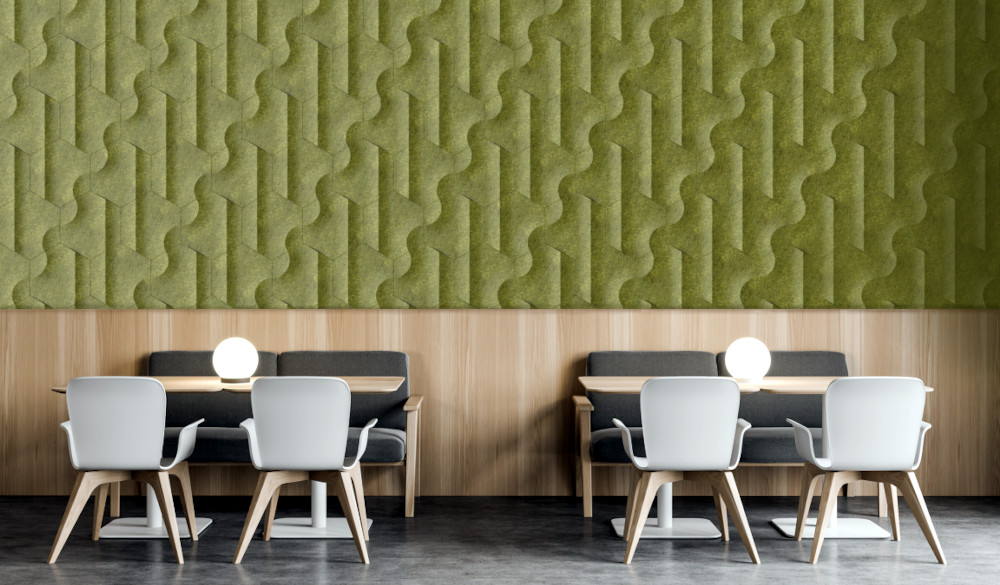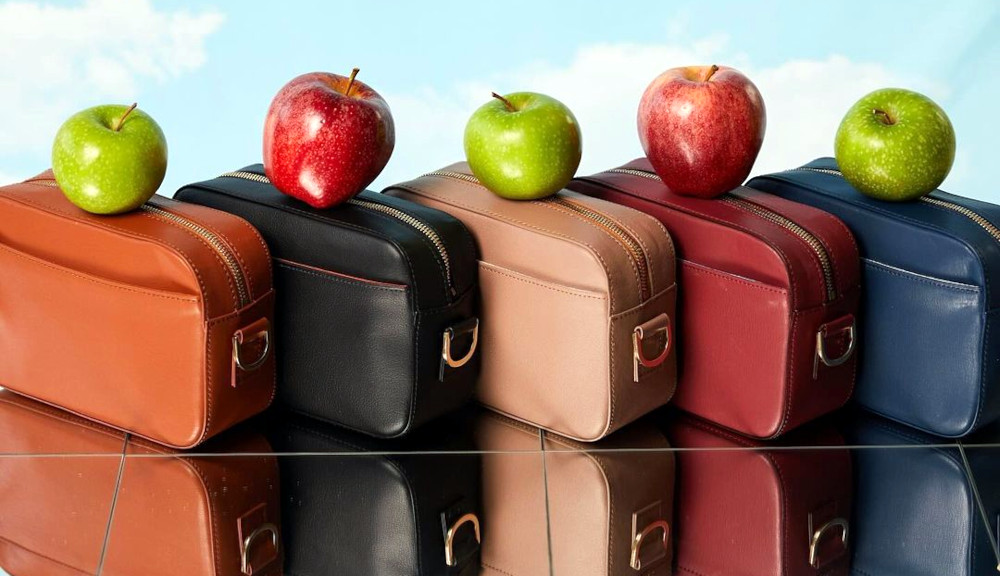Today, about one-third of all food
produced globally is thrown out — even though close to 800 million
people
throughout the world face hunger (over 122 million
more
since 2019).
Not only is this tragic on a human level — it is also a major environmental
issue, due to the enormous amount of land and resources that goes into food
production. In fact, food waste accounts for over 30 percent of all
human-caused greenhouse gas
emissions.
But unsellable
food
and
byproducts
from food production and manufacturing need not necessarily go to waste, as more
and more innovators — who are repurposing these “waste” streams into everything
from other
food
and personal-care
products
to
textiles
— are proving. Here are two more companies that are turning food waste into
value-added products.
Ottan Studio
 An acoustic wall panel made from grass | Image credit:
Ottan
An acoustic wall panel made from grass | Image credit:
Ottan
Founded in 2018 in Istanbul, Turkey, Ottan
produces upcycled building, furniture materials and
accessories — including wood alternatives
and cladding materials with acoustic properties from ingredients including egg,
pistachio and hazelnut shells; expired lentils and coffee pulp; and
frosted-glass alternatives from expired rice.
“By upcycling green waste into functional materials, Ottan helps to close the
loop in a circular economy — offering resource-efficient alternatives to
traditional materials,” founder Ayşe
Yılmaz, who studied Industrial
Product Design at Istanbul Technical University, told Sustainable
Brands® (SB). “Our approach has garnered significant interest from
designers and manufacturers globally, who appreciate the environmental benefits
and unique aesthetic qualities of Ottan's products.”
Yilmaz said Ottan sources its raw materials directly from food and agricultural
producers, using their waste and byproducts as inputs for production. For
large-scale acquisitions, Ottan partners primarily with food producers to secure
substantial quantities of green waste.
The company has also signed short-term collaborations with various global brands
to upcycle their waste, she explained. For example, Ottan turned pistachio
shells from the production of Nestlé's Damak brand pistachio chocolate into
bookshelves and donated them to schools in need. “We’re always open to
partnerships like this to expand our impact and reach a wider audience,” she
said.
“We believe that upcycling/recycling waste into new materials is the future of
how materials will/should be made,” Yilmaz — who was among the UK Women in
Green Business Awards 2024
finalists
for Clean Technology Innovator of the Year — asserted. “The future hinges on
moving away from traditional materials that deplete natural resources rapidly
and endanger biodiversity through overconsumption.”
Allégorie
 Allégorie’s apple leather cross-body bag | Image credit:
Allégorie
Allégorie’s apple leather cross-body bag | Image credit:
Allégorie
Meanwhile, New York City-based Allégorie
turns discarded fruits and plants into cruelty-free, vegan leather
accessories that reduce both
food waste and greenhouse gas emissions.
The company was founded in 2019, after co-founders Jen
You and Heather
Jiang
learned
about the ethical and environmental issues behind conventional leather bags and
decided to leave the world of corporate finance to design better solutions.
Apples, pineapple and cactus are among the company’s key ingredients. When
apples, for example, are processed for juice, 70-75 percent of the apple goes
into the juice; the remaining 25-30 percent is pomace (pulp), which usually ends
up in a landfill and releases methane — a greenhouse gas that traps more heat
than
C02.
Along with their production partners, Allégorie partners with juice
manufacturers to collect the pomace, dehydrate it, mix it with binding agents
and turn it into plant-based fabric.
When needed, Allégorie combines the materials it takes from discarded fruits and
combines them with other upcycled plant fibers and recycled polyester, and
non-toxic or plant-based dyes. The company also says that it produces all its
materials using sustainable processes that save energy and resources, without
releasing any toxic chemicals into the environment.
“Every bag at Allégorie reduces food waste and gives back to the local
community. We prioritize sourcing locally whenever possible,” Jiang, who was
just awarded a $50K “Fund Her Future”
grant
and a year’s worth of financial services from H&R Block, told SB.
A welcome trend
Circular material innovations are improving the sustainability of
fashion
and other industries, while putting the world’s overabundance of food waste and
other industrial “waste” streams to use — so, watch this space as the market
continues to grow.
Get the latest insights, trends, and innovations to help position yourself at the forefront of sustainable business leadership—delivered straight to your inbox.
Roberto Guerra is a bilingual writer, editor, entrepreneur, corporate engagement and communications specialist, and US Air Force veteran with a bachelor’s degree in Journalism from Universidad de la Sabana (Bogota, Colombia) and an International Master in Sustainable Development and Corporate Responsibility from EOI Business School (Madrid, Spain). Born in New York and raised in Florida, Roberto is former managing director for the Spanish-language version of vegan business magazine "vegconomist" and is also author of three novels. He has lived, worked and studied on four different continents.
Published Aug 2, 2024 8am EDT / 5am PDT / 1pm BST / 2pm CEST